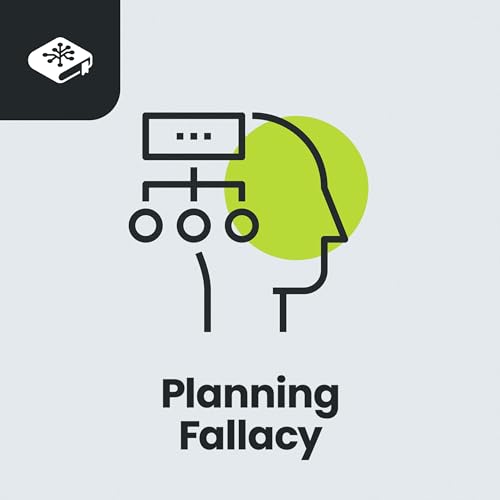
The Planning Fallacy: Why We Underestimate Time and How to Avoid It
No se pudo agregar al carrito
Add to Cart failed.
Error al Agregar a Lista de Deseos.
Error al eliminar de la lista de deseos.
Error al añadir a tu biblioteca
Error al seguir el podcast
Error al dejar de seguir el podcast
-
Narrado por:
-
De:
We underestimate how long projects will take—even when experience tells us otherwise. In this episode, I break down the planning fallacy: why it happens, how it derails projects, and what you can do to protect your team from unrealistic deadlines.
Why do we keep convincing ourselves that this time the project will be different, when it almost never is?
Every designer has been there: a bold timeline handed down from leadership, optimism in the air, and a quiet voice inside whispering, there’s no way this is going to happen. That voice is usually right, and it’s the planning fallacy at work.
In this episode, I share a real-world story of a global team tasked with rebuilding a massive legacy app on an impossible one-year deadline. The result? Chaos, delays, and missed expectations—classic symptoms of the planning fallacy. Along the way, I connect this to famous examples like the Sydney Opera House project and explain why even seasoned experts fall into the same trap.
Most importantly, I walk through practical strategies for beating the bias: using reference class forecasting, building in buffers, involving cross-functional teams in estimation, and learning from past outcomes. Because if we can see the planning fallacy for what it is, we can start making more realistic commitments—and protect our teams from burnout and broken trust.
Want to keep exploring cognitive biases that impact design teams? Subscribe to the Cognition Catalog newsletter and get a new bias in your inbox every week.
Topics:• 01:57 The Planning Fallacy in Action• 03:54 Understanding the Planning Fallacy• 05:50 Consequences of the Planning Fallacy• 07:30 Strategies to Combat the Planning Fallacy
To explore more about the Bike-Shedding Effect, don’t miss the full article @ cognitioncatalog.com



